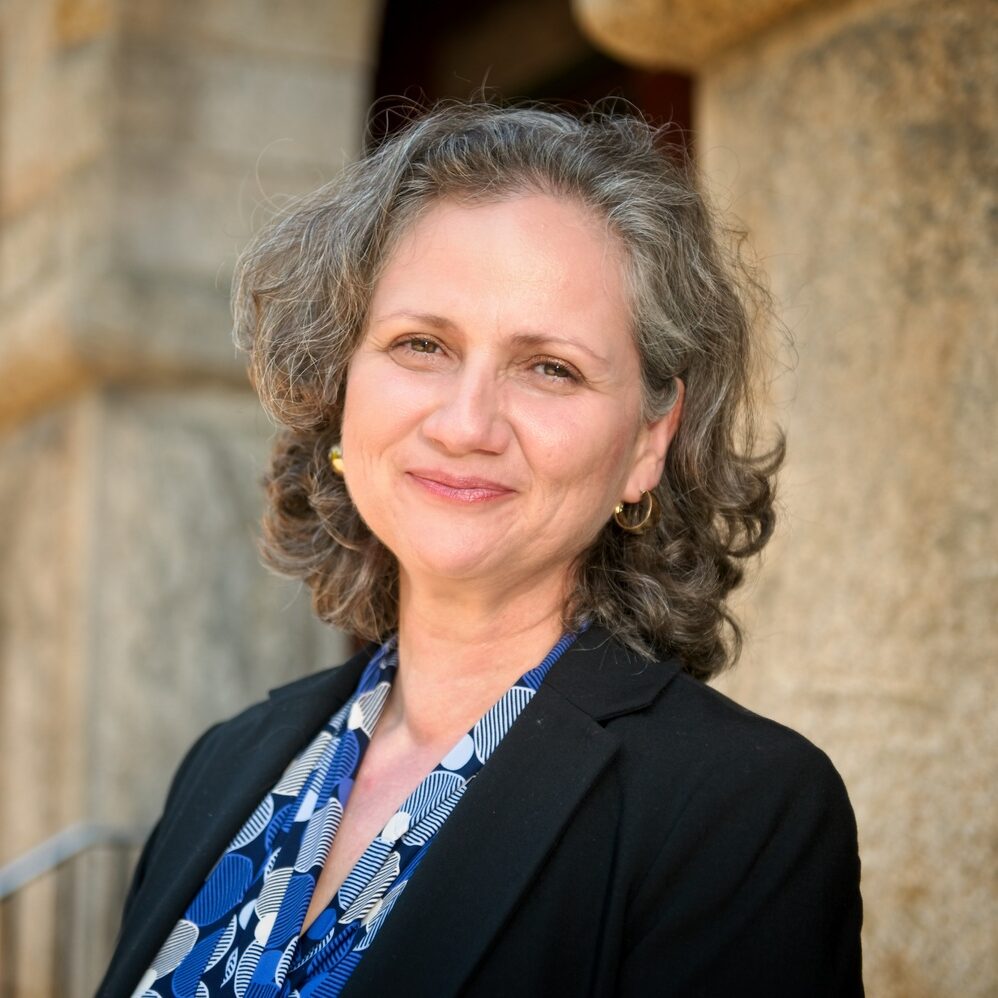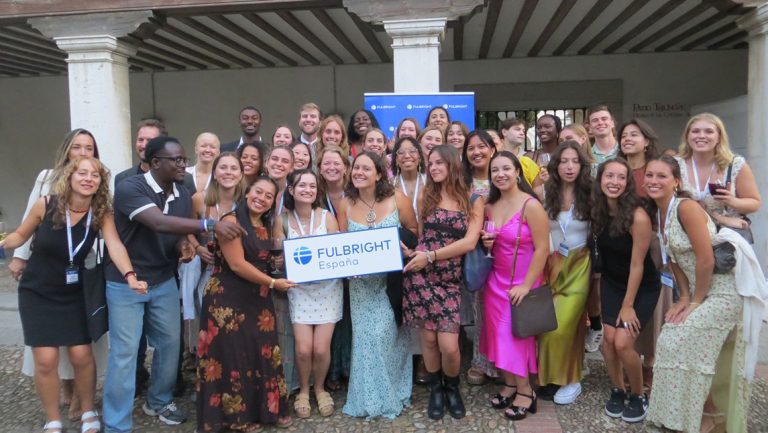Fulbright U.S. Student Program
About the Fulbright U.S Student Program
The Fulbright U.S. Student Program helps expand perspectives through academic and professional advancement and cross-cultural dialogue in partnership with more than 140 countries worldwide. The program is open to all academic disciplines to passionate and accomplished graduating college seniors, graduate students, and young professionals from all backgrounds.
Program participants pursue graduate study, conduct research, or teach English abroad. Grant lengths and dates vary by award.
PREPARING YOUR FULBRIGHT APPLICATION
- Pay attention to deadlines!
- The campus deadline is the date by which you should submit a strong application draft (you’ll get another chance to revise before the final deadline) to International Programs. A faculty committee will review your submission and you will be asked to participate in a campus interview panel. These panels are made up of faculty from related disciplines that have experience evaluating award candidates and are a great opportunity for you to get feedback on your application.
- The national deadline is the final deadline for your fellowship application. Pay careful attention to deadlines, including time zones. The national deadline is usually in the second week of October. Specific date varies each year and you can find the exact date on the Fulbright Student Program website.
- Do your research! Fulbright has tons of resources, information, and recipient profiles on their websites. Use this information to develop an in-depth understanding of what they are looking for in a candidate and use that knowledge to your advantage.
- SAVE OFTEN – Prepare your essays and materials in a word processor (Microsoft Word, Google Docs, Pages) and save your work often so you don’t lose any of it. Use the word and character count tools, spellcheck, and other native resources to avoid simple spelling and grammatical errors.
- Revise, revise, revise – You should anticipate writing and editing multiple drafts of each of your essays. Leave yourself plenty of time to revise.
- Use your resources – writing center, faculty, Fulbright advisor for UNCG, peers. The more eyes on your essay the better.
- Don’t wait until the last minute to submit. Application sites tend to get slow and clunky around the deadline due to increased traffic. Deadlines are firm and do not get shifted to accommodate unexpected delays on the applicant’s part. Don’t let your application get derailed by technology – apply at least a few days in advance!
- Save a copy of your completed application. Make sure to save a copy of your final submission for your records.
PERSONAL STATEMENT
One of the most critical parts of your application for the Fulbright Student Program is the personal statement. Typically around 1000 words (1 single spaced essay), your personal statement should connect past and present experiences with your future goals.
Your personal statement must present a clear, well developed and creative narrative. Tailor your statement to its audience (faculty members and experts in the area defined by the scholarship).
- Answer the question you are being asked. This is one of the most common (and most preventable) missteps that applicants can make. Be sure to read over the writing prompt very carefully BEFORE you start to write and tailor your essay accordingly.
- Use the first person. Most scholarship essays expect you to talk about personal experience, so use the first-person (“I”). Tell your story and convey your character, personality, values, and experiences. Strong scholarship essays are both critically astute and deeply personal.
- Choose content based on your academic and career goals. What drives you? What unique and interesting experiences have influenced you as a student and thinker? Make sure the connections between your statement and academic goals are apparent and justifiable.
- Find your voice. Write in a clear, engaging style, and avoid jargon and convoluted prose. Be honest, positive, and upbeat.
- Get personal (within reason). It is a “personal statement” after all! Yet, it is all too easy to get too personal. Be upfront about challenges that have shaped your life and inspired your passions, but make sure any examples you use have a clear connection to Fulbright and your goals.
- Grab the reader’s attention. A well-considered opening line is important. Be sure that each topic sentence makes a point or lays out an idea that is developed and illustrated by the paragraph that follows. Allow a reader to follow your argument by reading only those first sentences.
- Give your essay momentum, growing in interest and importance. Create a thread that connects different parts of the essay — an idea or image that unites the essay as a whole.
- Pull ideas together with your final paragraph. Your final sentence should be specific and visionary, rather than just a summary.
- Seek feedback and support. Revise frequently and bring your statement to our office frequently for us to review.
Letters of recommendation are crucial for success. Your letter writers should know you well and be able to speak in specifics about your academic and/or leadership abilities. Be sure to build relationships with your professors, so that they can compose strong, personalized letters of recommendation.
- Ask your professor nicely and politely. You do not have to ask the professor in person, but do not ask the professor in a quickly jotted, informal email in all lower case!
- Early, early, early. It takes time and care to write a good letter of recommendation and professors are busy. Ask for the letter well in advance of the due date. How far in advance? The earlier the better–at least a month before the due date to be safe. Never ask for a letter with fewer than two weeks until the deadline. Don’t forget to tell the professor the due date of application!
- Give the professor talking points. Just because you did well in the professor’s class doesn’t mean that the professor knows you. This is very important: the more information you give the professor, the better the letter your professor can write! If you inform your professor that you won a college-wide academic award, then that information will likely end up in your letter. You may want to provide some or all of the following… – Information about your experiences with the letter-writer (e.g., courses taken, class project topics, etc.) – Your resume or curriculum vitae – Information about the program to which you’re applying – Honor societies to which you belong – Anything that makes you unique – Awards that you have won – Relevant work experience or internships – Service activities such as volunteer work – Copies of admissions essays – Anything you want included in the letter.
- Make your professor’s job easy. Fill out as much information as you can. If the recommendation is on a graduate school form, then write the professor’s name, address, phone number, etc. on the form before you give it to the professor. If the recommendation needs to be mailed, give the professor a pre-addressed envelope. These courtesies are especially important if the professor must write several recommendations for you.
- Waive your rights. Many letters of recommendation allow you to choose whether you waive or retain your rights to see the letter. You should always waive your rights. The readers of the letter will give the letter more weight. Many letter-writers won’t write a non-confidential letter. If you’re nervous that the letter-writer won’t write you a good letter of recommendation, then ask someone else!
- Beware of spam filters. Many schools and programs have online applications in which the professor must upload the letter of recommendation. It is not uncommon for the email messages from these schools to get banished to the “junk” mailbox by spam filters. Make sure your professor received the email from the school.
- Follow up. The absent minded professor is more than just a cliche. Your professor may forget to write your letter. Don’t be afraid to check in periodically with your professor to see if the recommendation has been sent. Just be careful not to be a nag.
- Thank your professor! Write a thank-you note to your letter-writer (at least an email thank-you note)!
- Did you get it? Let your professor know if you get the job, the internship, or the spot in graduate school. They want to know!
Some countries require that applicants interview with a Fulbright selection panel upon being selected as a semifinalist.
If you are selected for an interview, follow the National Fellowship Interviews: Preparation, Advice, & Guidance document compiled by and from the National Association of Fellowships Advisors (NAFA).
Review any specific guidance available on your fellowship’s website or that you receive directly from the issuing organization.
Faculty Support for Student Applicants
We are very grateful to all the faculty who supported and mentored the students through the application process. We know mentoring is time consuming and labor intensive, but faculty serve as the best role models for students in terms of building skills, and resilience, in fellowship and grant applications.”
~Maria Anastasiou, Associate Provost for Global Engagement

Nominate a Student
Do you have a student who has what it takes to apply for a Fulbright Student award? Please nominate them by sending an email to Maria Anastasiou at m_anastasio@uncg.edu.
Writing Letters of Recommendation
Your letter of recommendation can distinguish a student from the crowd and prove decisive in the selection process. UNCG students have strong faculty support, and we appreciate your help. Here are some tips to help faculty with writing strong recommendations letters.
- Detail how you know the student
- Illustrate the qualities that you value in him/her
- Contribute original information and insight to the application
- Offer some basis for comparison
- Anecdotes are extremely valuable
- Discuss a project or paper that the student handled well
- Highlight a conversation, class discussion, or group contribution that impressed you
- Address the letter “Dear [Insert Scholarship Name] Committee,” to allow for the letter to be used both for the UNCG nomination and the national competition
- Review the fellowships website for any opportunity-specific letter writing guidance
Mentorship Opportunities
Each year, faculty volunteer to mentor Fulbright student applicants throughout the application process, providing valuable feedback and guidance.
If you are interested in serving as a mentor or an interviewer, please contact Dr. Maria Anastasiou, Associate Provost for Global Engagement at m_anastasio@uncg.edu.


